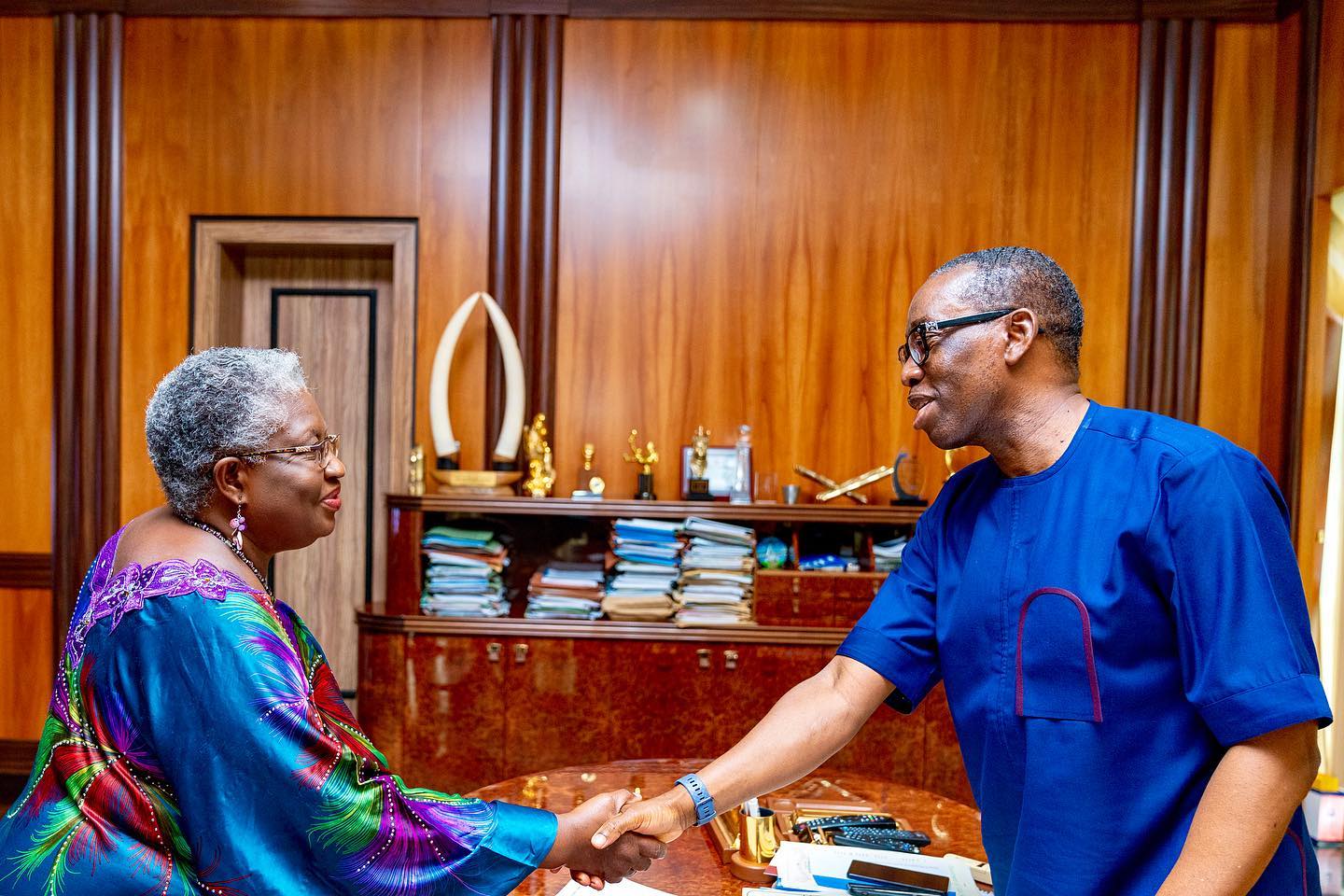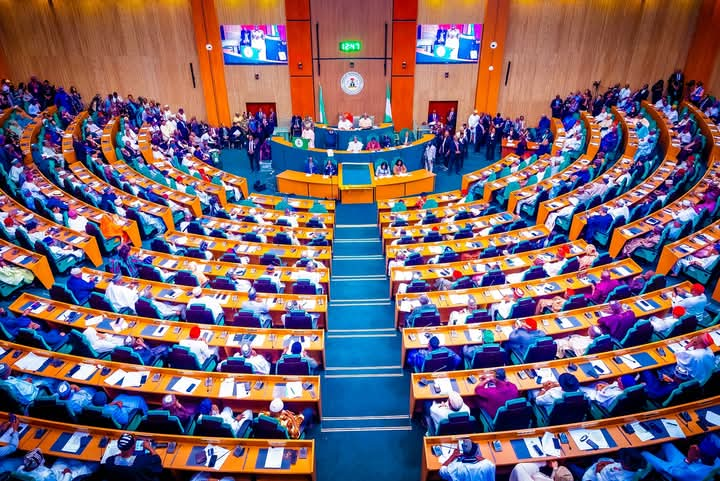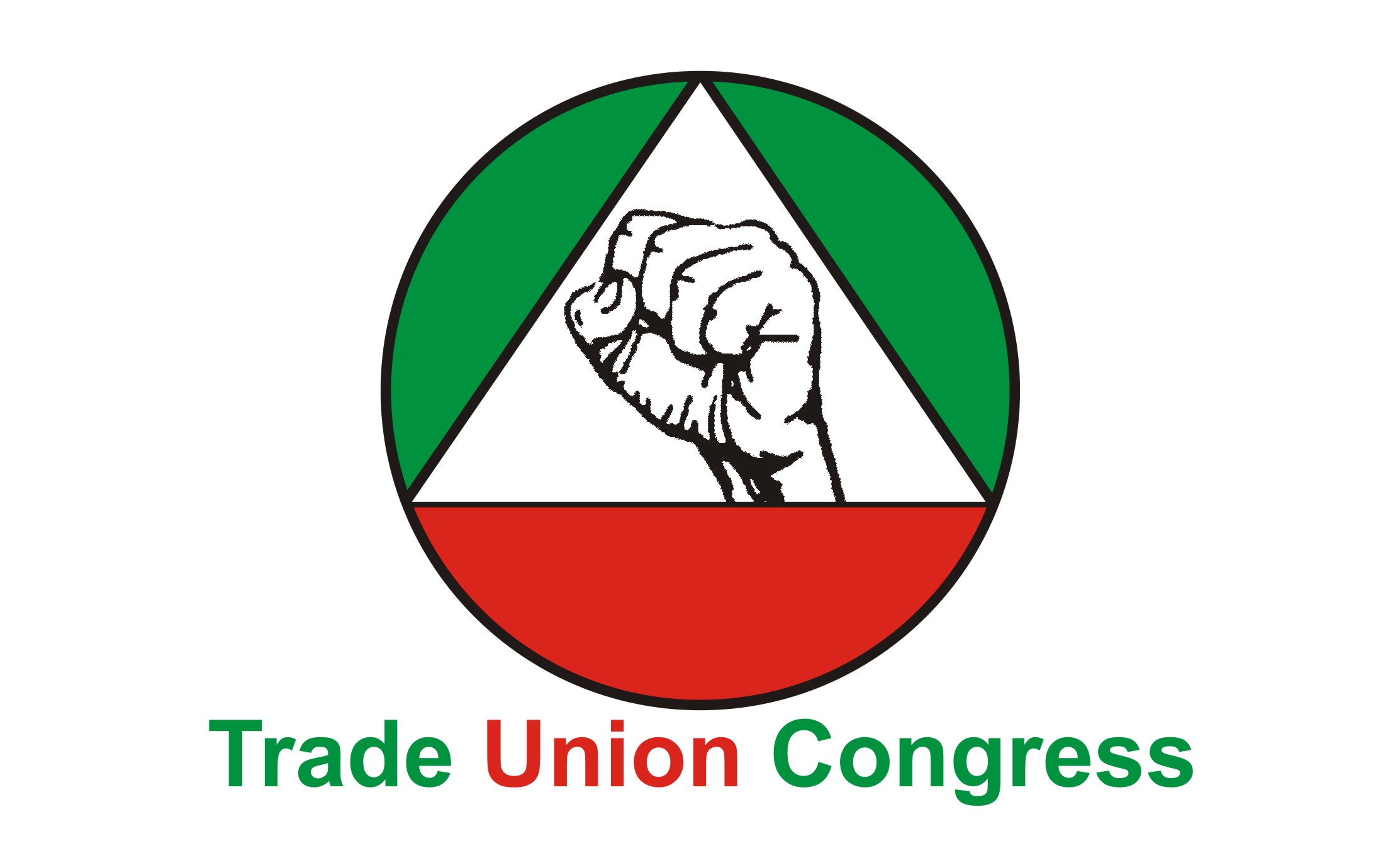Featured
SERAP, 24 Others Drag FG To ECOWAS Court Over NBC Broadcasting Code

The Social and Economic Rights and Accountability Project (SERAP) and 24 concerned Nigerians have sued the President Muhammadu Buhari-led Federal Government, and the National Broadcasting Commission (NBC) at the ECOWAS Community Court of Justice in Abuja.
SERAP said the suit is over “the arbitrary use of the NBC Act and Broadcasting Code to target, harass, sanction, and fine independent television and radio stations in Nigeria, and to restrict Nigerians’ freedom of expression and access to information.”
The rights group is asking the ECOWAS Court to declare “illegal and contrary to Nigeria’s international human rights obligations the provisions of the NBC Act and Broadcasting Code frequently apply by the Federal Government and NBC to target, harass, intimidate, and impose sanctions on independent television and radio stations in the country.”
The suit is coming in the wake of the “‘bridge (breach) letter’ by the NBC asking Channels TV to explain why it interviewed the spokesman of a proscribed organisation; the ban on Jay FM 101.9 Jos for playing songs such as Falz’s ‘This is Nigeria’, Wande Coal’s ‘Iskaba’ and Olamide’s ‘See Mary, See Jesus’; and the N9million fines imposed on Channels TV, AIT and Arise TV (N3million each) over their coverage of the #EndSARS protests.”
In the suit number ECW/CCJ/APP/19/21 and filed last week, the Plaintiffs are arguing that “the rights to freedom of expression, access to information and media freedom allow Nigerians to seek and attain truth, which is an inherently good activity. These rights also allow Nigerians to participate in representative governance, social and political decision-making, which the Federal Government and NBC are obligated to foster and encourage.”
According to the Plaintiffs, “Attempts to justify restrictions on these fundamental rights and freedom on the overly vague grounds of incitement, morality and subversion of the constituted authority contradict the principles of the universality of human rights. Freedom of Expression is a fundamental human right and cannot be denied without lawful justification.”
The Plaintiffs are also arguing that, “the application of the Nigerian Broadcasting Act 1992 and Broadcasting Code to sanction independent television and radio stations is arbitrary, and has created an environment in which independent media houses are censored, or resort to self-censorship.”
The Plaintiffs state that, “despite the Freedom of Information Act in Nigeria which guarantees the right to access public records, the Federal Government and its agents and several states of Nigeria have routinely refused to release information sought.”
The Plaintiffs are also arguing that “a lot of Nigerians at home and abroad rely on independent television and radio stations including online on their coverage of topical issues of public interest to access impartial, objective and critical information about ideas and views on how the Federal Government and its agents are performing their constitutional and international human rights obligations.”
The suit filed on behalf of the Plaintiffs by their lawyers, Kolawole Oluwadare and Opeyemi Owolabi, read in part, “The low level of political tolerance for views perceived to be critical of government or offensive means that the press continues to be subject of scare tactics, harassment and intimidation.
“Censorship restricts the flow of information from the Federal Government and its agents about issues of public interest, preventing people from accessing critical information, expressing themselves, and denying them opportunities to assert other fundamental human rights.
“It also violates the rights of people to openly discuss issues relating to transparency and accountability in government, and prevents them from accessing information on a wide range of related concerns.
“The Federal Government and NBC should be stopped from using the broadcasting code or any other regulations and/or law to erode the sacred rights to freedom of expression, information and media freedom, which is the bedrock of the rule of law and sustainable democracy.
“The Federal Government and NBC have routinely breached the fundamental principles of media freedom and media plurality, which are a central part of the effective exercise of freedom of expression and access to information, and thereby undermined the ability of Nigeria’s independent media houses to function effectively.
“The persistent use of the NBC Act and broadcasting code by the Federal Government and the NBC is a blatant violation of the rights to freedom of expression, access to information and media freedom, as well as prohibition against self-censorship.
“The rights to freedom of expression, access to information and media freedom promote diversity in forms of individual self-fulfillment and human flourishing, which the Federal Government and its agents ought to cultivate to achieve a tolerant and welcoming environment for the sake of good governance, the rule of law and respect for human rights.
“The Federal Government and NBC have violated the right of Nigerians to objective and impartial news coverage and reportage, as they continue to impermissibly restrict individuals’ rights to freedom of expression, access to information, and press freedom in Nigeria.
“The Federal Government and NBC have seriously undermined the ability of independent media houses to practice journalism free from undue interference, to cover diverse views that are crucial to the exercise of many other rights and freedoms.”
The Plaintiffs are therefore asking the ECOWAS Court of Justice for the following reliefs: “A Declaration that the application of the provisions of the National Broadcasting Commission Act 1992 and the Nigeria Broadcasting Code by the Defendant and its agent to impose sanctions and penalties on independent television and radio stations is inconsistent and incompatible with the right to freedom of expression, access to information, and media freedom guaranteed under Article 9 of the African Charter on Human and Peoples’ Rights and Article 19 of the International Covenant on Civil and Political Rights.
“An Order setting aside the sum of N5million or any other form of penal sanction unilaterally imposed by the Defendant and its agents on Channels TV and/or on any such other television and radio stations.
“An Order directing the Defendant and its agents to immediately repeal and/or amend the National Broadcasting Commission Act and the Nigerian Broadcasting Code and bring them into conformity with Nigeria’s international human rights obligations.
“An Order of Perpetual Injunction restraining the Defendant and its agents from unlawfully imposing sanctions fines or doing anything whatsoever to harass Channels TV and any other television and radio stations in violation of the African Charter on Human and Peoples’ Rights and the International Covenant on Civil and Political Rights
“Such further order or orders the Honourable Court may deem fit to make in the circumstances of this suit.”
SERAP said no date has been fixed for the hearing of the suit.
Featured
Reps Propose Creation of 31 New States

The House of Representatives Committee on Constitution Review has proposed the creation of 31 new states in the country.
If the proposal scales through, the Nigerian state will be made up of 67 sub-national governments.
The proposal for new states was contained in a letter read during yesterday’s plenary session by the Deputy Speaker, Benjamin Kalu, who presided over the session in the absence of the Speaker, Mr Tajudeen Abbas.
The committee chaired by Kalu proposed six new states for North Central, four in the North East, five in the North West, five in the South East, four in the South-South and seven in the South West.
The letter read in part, “The committee proposes the creation of 31 new states. As amended, this section outlines specific requirements that must be fulfilled to initiate the process of state creation, which include the following:
New state and boundaries
“An act of the National Assembly for the purpose of creating a new state shall only be passed if it requires support by at least the third majority of members.
“The House of Representatives, the House of Assembly in respect of the area, and the Local Government Council in respect of the area are received by the National Assembly.
“Local government advocates for the creation of additional local government areas are only reminded that Section 8 of the Constitution of the Federal Republic of Nigeria, as amended, applies to this process.
“Specifically, in accordance with Section 8 (3) of the Constitution, the outcome of the votes of the State Houses of Assembly in the referendum must be forwarded to the National Assembly for fulfillment of state demands.
“Proposals shall be resubmitted in strict adherence to the stipulations. Submit three hard copies of the full proposal of the memoranda to the Secretariat of the Committee at Room H331, House of Representatives, White House, National Assembly Complex, and Abuja.
“Sub-copies must also be sent electronically to the Committee’s email address at info.hccr.gov.nj. For further information or contact, please contact the Committee Clerk at 08069-232381.
“The committee remains committed to supporting the implementing efforts that align with the Constitutional provisions and would only consider proposals that comply with the stipulated guidelines. This is coming from the Clerk of the Committee on Constitutional Review.”
The proposed new states are Okun, Okura and Confluence states from Kogi; Benue Ala and Apa states from Benue; FCT State; Amana State from Adamawa; Katagum from Bauchi State; Savannah State from Borno, and Muri State from Taraba.
Others are New Kaduna and Gujarat from Kaduna State; Tiga and Ari from Kano; Kainji from Kebbi State; Etiti and Orashi as the 6th state in the South East; Adada from Enugu, Orlu and Aba from the South East.
Also included are Ogoja from Cross River State; Warri from Delta; Ori and Obolo from Rivers; Torumbe from Ondo; Ibadan from Oyo; Lagoon from Lagos; Ijebu from Ogun State, as well as Oke Ogun/Ijesha from Oyo/Ogun/Osun States.
Featured
TUC Opposes FG’s Proposed Toll Gate On Federal Roads, Rejects Electricity Tariff Hike

The Trade Union Congress of Nigeria, (TUC), yesterday, opposed the plans by the Federal Government to toll selected federal roads in the country, as a means of revenue generation.
The TUC also kicked against any attempt to increase telecom tariff, saying it will compound the present economic hardship Nigerians are going through.
President of TUC, Comrade Festus Osifo, while presiding over the 1st Quarter 2025 National Administrative Council (NAC) of the Union in Abuja, yesterday, condemned the proposed reintroduction of toll gates on some federal highways without first of all ensuring that the roads are in good condition.
Osifo, who blamed the hardship in the country as a result of the government policies like the flotation of the naira, wondered why the Federal Government should initiate policies bothering on the citizens without due consultations with relevant stakeholders.
He said its is annoying that most of the roads which are unpaved, dilapidated, and riddled with potholes should be open for collecting tolls.
A communique issued at the end of the meeting partly read: “NAC deliberated on the proposed introduction of toll gates on selected federal roads and strongly condemned it in its entirely. While we acknowledge that tolling is a globally recognized method of generating revenue for road maintenance, it is unacceptable to impose tolls on roads that are unpaved, dilapidated, and riddled with potholes.
“The NAC views this as an insult to Nigerians, who are being asked to pay tolls on roads that are in total disrepair. Our highways are death traps unsafe, abandoned, and filled with potholes. Rather than fulfilling its responsibility to fix and maintain these roads, the government is resorting to shameless extortion.
“The Congress, therefore, demands that all roads earmarked for tolling must first be fixed, properly tarred, and repaired to international standards before any discussion on tolling can be entertained”.
Although the Federal Government recently debunked plans to increase electricity tariff by 65 percent, TUC said it was alarming that the government even considered the hike in the first instance.
Osifo lamented that the previous increment already inflicted severe hardship on citizens.
He said, “This proposed increase is not only ill-timed but also a deliberate act of economic oppression against Nigerians, who are already struggling under unbearable economic conditions.
“The improved service quality promised during the last tariff hike, particularly for consumers under the so-called “Band A” category, has not been realized. Most consumers, regardless of their tariff band, continue to live in perpetual darkness”.
TUC observed that the root cause of escalating prices and galloping inflation was the devaluation of the Naira.
Going down memory lane, Osifo said in February 2024, the TUC addressed a world press conference, where it clearly stated that the excessive devaluation of the naira was the primary cause of rising inflation and the continuous increase in the prices of goods and services.
He said Congress also warned that this trend would worsen inflation in 2024, impacting virtually every sector of the economy and severely affecting the social and economic well-being of Nigerian workers and the masses if the solutions it canvassed were not adopted.
The TUC President said 12 months later, the Congress position remained unchanged, alleging that the symptoms of the root cause have manifested clearly.
According to him: “These include the skyrocketing prices of essential goods, the escalating costs of social services, the proposed hike in telecom tariffs, the increase in electricity tariffs (with plans for further increments), the rising prices of petroleum products amongst others.
“The TUC remains focused on addressing the root cause of these economic challenges rather than merely reacting to the manifested symptoms. To this end, the TUC demands a better foreign exchange (FX) management regime from the Central Bank of Nigeria (CBN) as the naira is currently undervalued, as confirmed by both local and international experts.”
He warned that if the policies were not reviewed to favour the citizens, the TUC may be compelled to mobilise for mass protest.
“The NAC, on behalf of the Congress, strongly advises the government to refrain from introducing policies that would further exacerbate the current economic hardship faced by hardworking Nigerians.
“If the administration insists on implementing these policies, the TUC will have no choice but to mobilize the working class, civil society, and the oppressed masses for a nationwide action. This level of exploitation is unacceptable. A stitch in time saves nine,” he warned.
Featured
Africa Must Stop Depending On Foreign Blueprints -Tinubu

President Bola Tinubu has charged African leaders to stop clinging to their old habit of depending on foreign plans, saying the continent is in dire need of leaders who wield policy as a surgical blade instead of a slogan.
Tinubu lamented what he described as “the tragedy of our time” whereby African leaders do not only confine themselves to foreign blueprints but refused to emancipate themselves from client-state mentalities and governance by hashtag activism.
The President made these remarks in Abuja, yesterday, during the Dr. Kayode Fayemi commemorative symposium and launch of the Amandla Institute for Policy and Leadership Advancement, with the theme “Renewing the Pan-African Ideal for the Changing Times: The Policy and Leadership Challenges and Opportunities.”
The symposium was organised to commemorate the 60th birthday of the former Governor of Ekiti State, Dr Kayode Fayemi.
Represented at the event by the Vice-President, Senator Kashim Shettima, the President said, “Whatever our differences across the continent, one fact that can’t be eroded by our infighting is that we are in the age of machines, and we can’t fight our development dilemma with spears and arrows while the rest of the world is fighting the same battle with missiles and tanks. The world is not waiting for Africa to catch up.
“While we parse political rivalries, others parse datasets. While we litigate history, others engineer futures. The train of progress accelerates, yet too many of our leaders cling to old carriages. These are our client-state mentalities, our dependency on foreign blueprints, and our governance by hashtag activism. This is the tragedy of our time.
“The founding of Amandla Institute emerges as an antidote to this paralysis. We are here not only to generate more ideas but to create executors. We need leaders who wield policy as a scalpel, not a slogan. We need visionaries who see AI as a collaborator, not a competitor. We need a generation of Africans who recognise that Pan-Africanism, renewed for this age, must be rooted in actionable sovereignty.”
Tinubu pointed out that it would be wishful thinking to hope that the renaissance of Africa will happen as a gift, maintaining that it must be built.
He regretted that for too long, leaders in Africa have outsourced their thinking, relying on institutions and ideologies that treat countries on the continent “as consumers, not creators,” just as he insisted that the youth must be empowered to innovate in tech hubs across the continent.
“But the post-idea world dissolves excuses. With the democratisation of knowledge, we must empower our youth to innovate in tech hubs across the continent, from Cairo, down through Nairobi, to Lagos, building unicorns without the permission of any gatekeepers. What they lack is not ideas but ecosystems—systems where policy, funding, and political will converge to scale their genius,” he noted.
The Nigerian leader further urged African leaders to “evolve from custodians of power to architects of platforms,” adding that their “imagination of Africa must be one where every government ministry houses.
“AI strategists, where continental trade policies are drafted by homegrown think tanks like Amandla Institute, not foreign consultants, and where “Made in Africa” signifies not raw materials but algorithms, green tech, and cultural capital.”
-

 Politics3 days ago
Politics3 days agoLG Autonomy: NBA To Host Talks On S’Court Verdict Implementation
-
Education3 days ago
Council Boss Charges Corps Members To Promote Peace
-

 Sports3 days ago
Sports3 days agoLASG Tasks Officials, Athletes On Maintenance Of Upgraded Sports Facilities
-

 Oil & Energy3 days ago
Oil & Energy3 days agoBenue To Pioneer Gas Production From Coal – NGEP
-

 Rivers3 days ago
Rivers3 days agoCrisis Looms In Emohua Over Land Grabbing Allegation On Awuse
-

 News3 days ago
News3 days agoGunmen kidnap Youth Council President
-

 News3 days ago
News3 days agoOgoniland Varsity’ll Heal Historic Wound, Says TDF
-

 Politics3 days ago
Politics3 days agoAPC Chieftain Hails Tinubu For Sacking Suspended INEC RECs











